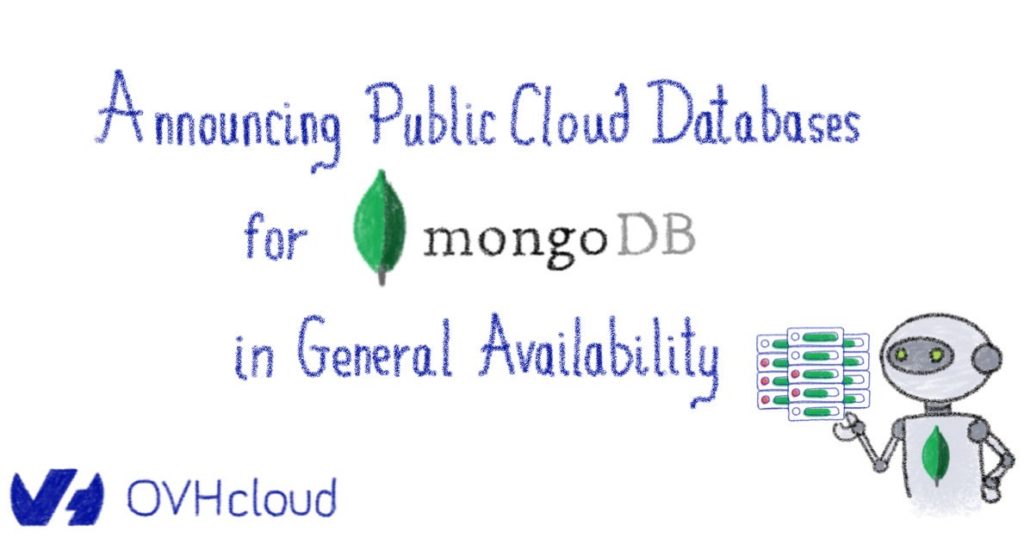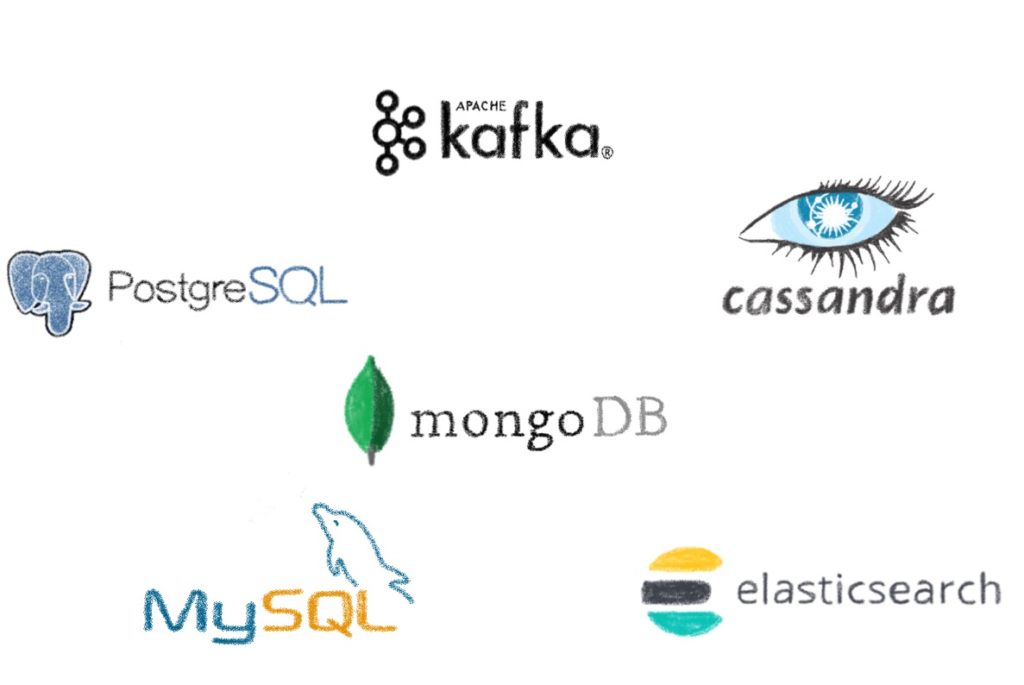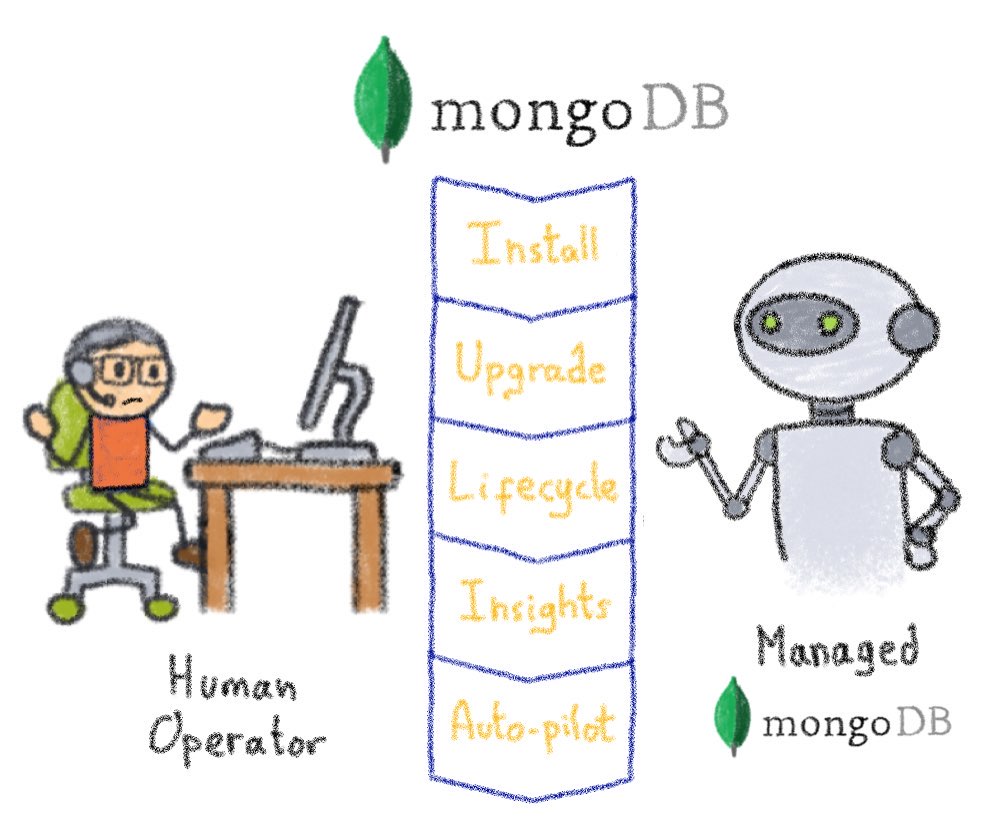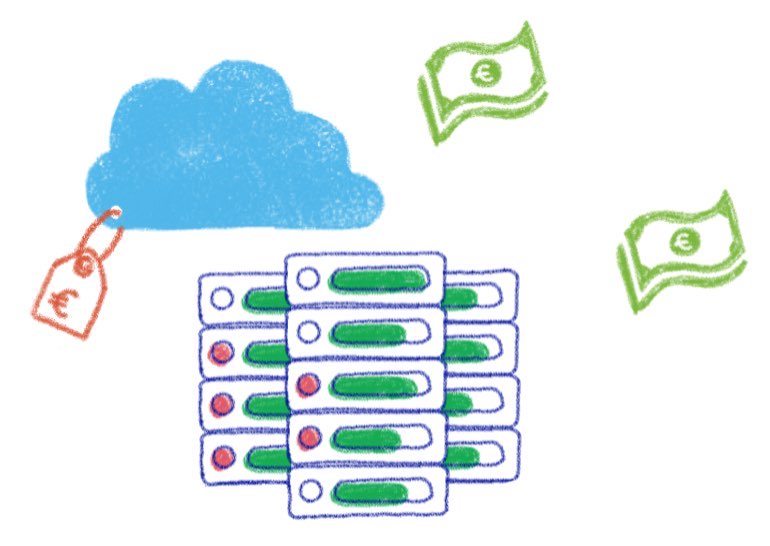A bit more than 3 months ago, we announced in a previous post our intention to provide managed databases in our Public Cloud ecosystem.
After hundreds of cluster delivered for free, dozens of pull requests, tons of constructive discussions with customers and partners,… we are live!

We are really pleased to announce our Public Cloud Databases for MongoDB offers on General Availability 😀
And today is a good day! MySQL, PostgreSQL, Kafka, … are now also available for FREE in Beta!
We will talk about it in another blog post, that’s another story 😀

About MongoDB offers, what does it mean? How does it work? Why you should use it? Let’s find out together!
What do we solve?
Installing MongoDB is an easy operation if you have basic computer administration knowledge. But that’s the easy part.
Operating databases on a daily basis is way more challenging. Databases are quite often critical for your use case, and taking care of them ends up being a full time job. Instead of deploying and maintaining your databases yourself, what if a dedicated team took care of the setup and initial state-of-the-art configuration, securization, and maintenance in operational conditions?

That’s quite appealing. It’s not new in the “Cloud world”, many competitors built Databases as a Services solutions, I guess you’ve heard about the most famous ones, aka Amazon RDS or Google Cloud SQL.
But this is new for OVHcloud in our Public Cloud ecosystem, and a very important step!
We are now able to solve a major customer challenge: fast deployment of database clusters, with scalability, security and resiliency.
Let’s deep dive into the detailed features!
What’s in the box for MongoDB offers?
Official MongoDB software and license
MongoDB is recognized worldwide as the best document-based database engine. This software is available in two versions:
- MongoDB Community: the most common MongoDB version, under Server Side Public Licence (SSPL). To put it simply, it’s free unless you use it as a “Program as a Service”;
- MongoDB Enterprise: same core but advanced features for security, backups, auditing tools, BI connectors, MongoDB consulting… Perfect for advanced use-cases.
At OVHcloud, we made a strong partnership with MongoDB, allowing us to provide both Community and Enterprise licenses “as a Service”. That’s indeed a very good news for customers since we are able to provide “vanilla”, genuine version of MongoDB.
It ensures that you get the full MongoDB experience, and are able to move in / out OVHcloud if required. It’s not a fork, like AWS DocumentDB (see the MongoDB compatibility test) or Azure CosmosDB. Hence, you benefit from the latest MongoDB features as well as the official MongoDB documentation, and drivers work natively.
As I am writing, offers with Community License are in General Availability, and Enterprise will come later.
Easy to start, easy to use, easy to scale
Let’s see how simple it is!
Through our control panel, you can launch a MongoDB Database instance in one minute. Select a region, a version, a service plan, and voila! After a few minutes, your cluster is up and ready, allowing you to manage security rules, users, backups, logs and metrics.
It’s also easy to scale; you can upgrade to a higher service plan, add up to 8 nodes per cluster, and pay what you use- true for every public cloud product -on a hourly basis.
Of course, you can delete your services in a few clicks, allowing you to try the products for few bucks.
Managed by OVHcloud
Again, our aim is to simplify your life and cloud adoption. What we do for you:
- Install MongoDB clusters, based on your choices (versions, nodes, and co);
- Operate the subjacent Linux system (patches, hotfixe, upgrades, …);
- Operate the DBMS software: provide minor and major DBMS versions;
- Operate the subjacent hardware;
What you remain responsible for:
- your data,
- your structures,
- your code
- performance monitoring…
In short, what’s “in” the database instance. We cannot replace you on this 😀
High-Availability and automatic backups
We built 3 service plans: Essential, Business and Enterprise.
All the plans come with automated daily backups, encrypted and stored ouside the datacenter of the cluster.
Starting with Business plans, High-Availabilty is provided natively with 3 nodes by default (Replica Set), maximum 8 nodes. Each node includes a copy of your data to keep it safe. In case of a node failure, your cluster is still up and ready.
Currently we do not provide clusters replicated across multiple regions but we are working on it.
Logs and Metrics Dashboards
To simplify your obvervability tasks, we provide live logs and main metrics in our control panel.
Our mid-term goal is to expose metrics and log to third-party tools.

Last but not least: simple billing! Cloud without headaches
We really focused on simplifiying your cloud adoption, and one of the biggest drawbacks for customers is to predict and control the cost of their cloud infrastructure.
Take a look at our pricing page, we’ve done our best to keep it simple: no hidden cost, everything is predictive and included:
- Databases services with included storage;
- Guaranteed resource performance over time (no burst, no IOPS to buy)
- Data transfer In/Out
- Daily Backups
- logs and metrics
Zero risk of overspending!

Plenty of use-cases
MongoDB is a document-based database, meaning that you can store heterogeneous data in it, not in a classic SQL way (tables, columns, lines) but in a “flat” way like a JSON file.
Many use-cases benefits from this data storage and queries, such as IoT, Real-time data analytics, Single View and much more. The official MongoDB website details the most important ones.
To get a managed MongoDB, what are the other options in cloud providers?
Let’s have a quick look at competitors. If you are looking for a managed MongoDB cluster under European legislation only, OVHcloud and CleverCloud are the only providers offering it.
Choosing a provider will require more than one table, but here is a quick overview. If you are not aware, MongoDB also provides managed services, it’s called MongoDB Atlas. really impressive offers from a feature perspective. You can host them in AWS, Google Cloud or Hosting. Since it’s not a cloud provider offer, I decided to not compare this last one.

The end! Useful links
I really hope that offers and features are clearer now, and like us that you are over hyper about the data future a OVHclooud. I you need more, here
I really hope that offers and features are clearer now, and that you are as enthusiastic as we are about the data future at OVHcloud!
Should you want to learn more, here we are:
Discuss with us on our Discord servwr!
Product Manager for databases / big data / AI

